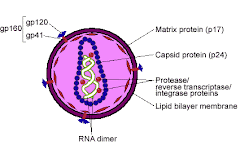 Scottsboro Boys
Scottsboro Boys
"The case of the Scottsboro Boys arose in Scottsboro, Alabama during the 1930s, when nine black youths, ranging in age from sixteen to twenty, were accused of raping two white women, one of whom would later recant.
The trials, in which the youths were convicted and sentenced to death by all-white juries despite the weak and contradictory testimonies of the witnesses, are regarded as one of the worst travesties of justice perpetrated against blacks in the post-Reconstruction South.
The case quickly became an international cause célèbre and the boys were represented by the American Communist Party's legal defense organization. The death sentences, originally scheduled to be carried out quickly, were postponed pending appeals that took the case all the way to the U.S. Supreme Court, where the sentences were overturned. Despite the fact that one of the women later denied being raped, the retrials resulted in convictions. All of the defendants were eventually acquitted, paroled, or pardoned (besides one who escaped), some after serving years in prison.
________________________________________________________________
On March 25, 1931,[1] a fight broke out between a group of black men and a group of white men riding in a car of a Southern Railway freight train.[2] All of the white men and boys, except Orville Gilley (key witness in trial) were forced to jump off. When the train stopped in Paint Rock, Alabama, the nine black youths were arrested on charges of assault. Two young white women dressed in boys' clothing — Victoria Price, aged 21, and Ruby Bates, aged 17 — were also found catching a free ride on the freight train. All were taken to Scottsboro, Alabama, the Jackson County seat. The two girls, unemployed mill workers and part-time prostitutes from nearby Huntsville, told authorities they had been brutally gang raped by the nine blacks taken into custody in Scottsboro.
Twelve days after the men had been arrested the first trial took place. They were all kept in jail cells just feet away from the electric chair chamber where they were made to hear and smell the electrocutions of the other members of death row; this was later deemed cruel and unusual punishment. Their lawyer was Milo Moody, a Tennessee lawyer unfamiliar with Alabama law, who met with the boys for just 25 minutes before the case was presented to a judge. Some accounts said that he was drunk for the duration of the trials. When called to testify, the boys began to blame and accuse each other , which made the case worse. Haywood Patterson and the other 8 defendants were found guilty of raping the two white girls.
The case was overturned on appeal dues to lack of fair and adequate legal representation, and the retrial was moved from Scottsboro to Decatur, AL. A well known lawyer, Samuel Liebowitz, from New York, came to the defense of the boys pro-bono. The prosecuting lawyer was Thomas E. Knight, and Judge Edwin Horton presided.
In the November 1932 re-trials Ruby Bates told the courts that she and Victoria Price had not been raped by the accused, explaining that the two had made up the story to avoid vagrancy charges (the prosecution accused her of being bought off by the Communist Party (which was supporting the defendants' case). Later in the trials, a witness who owned a farm near the railways came forward, claiming to have seen the alleged crime take place. When asked if he could identify what the two girls were wearing, he stated that they were both wearing dresses, despite the fact it had been earlier established that they were both wearing overalls in an attempt to pass as male. Medical examinations found the girls had no scarring indicating rape. In fact they were found to have engaged in consensual sex while traveling with the white men the night before. Despite the insurmountable evidence in their favor, all of the defendants were found guilty for a second time and sentenced to death. On June 22, 1933, Judge Horton threw out the verdict of the trial and subsequently lost his position as judge."
Thursday, September 20, 2007
The Case of the "Jena 6" Is An Eerie Reminder of the Case of the "Scottsboro Boys"
Blogs'FamilyCorruptionInTheBigEasy||
FamilyCorruptionInTheBigEasy: Part 2
Posted by
Boop
at
9:09 AM
![]()
Labels: jena 6, Scottsboro Boys
Subscribe to:
Post Comments (Atom)


















No comments:
Post a Comment